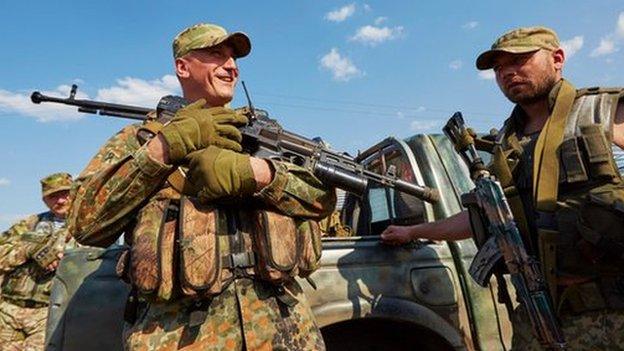Putin condemns Kiev over 'blockade' of east Ukraine
- Published
President Putin: "The growth of internal agricultural production is inevitable"
Russian President Vladimir Putin says Ukraine's government is "cutting off" defiant rebel-held areas of eastern Ukraine through an economic blockade.
He was addressing a huge Russian audience in a live televised phone-in.
He also insisted "there are no Russian troops in Ukraine". Moscow denies Western charges that it is directly arming and reinforcing the rebels.
Later he said those who had ordered the murder of Boris Nemtsov - one of his leading critics - might never be found.
Mr Nemtsov, a prominent opposition politician, was shot dead on 27 February near the Kremlin.
Five suspects, all of them Chechens, are in custody. Mr Putin condemned the murder as "disgraceful".
Ukraine 'blockade'
It was Mr Putin's 13th marathon annual phone-in with the Russian public, and lasted nearly four hours.
Mr Putin denied reports that Ukraine's President Petro Poroshenko had offered to let Russia have the rebel-held areas in the Donbas region.
The rebels reject Kiev's rule and are getting humanitarian aid from Russia, which annexed Ukraine's Crimea region last year.
"There are many problems there and we do not see the current Kiev authorities wanting to restore the social sphere, or the economy of Donbas," Mr Putin said.
"We see a total blockade of Donbas. One can say that the current Ukrainian authorities are cutting off Donbas by their own hand. That is the problem and tragedy."
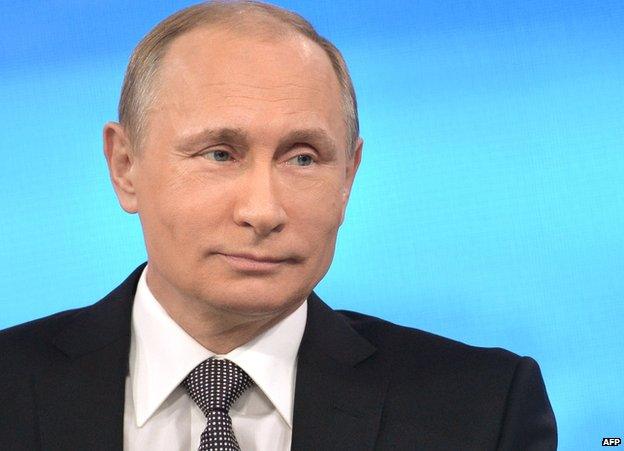
It was a rare occasion for Mr Putin to speak to a huge audience of Russians directly
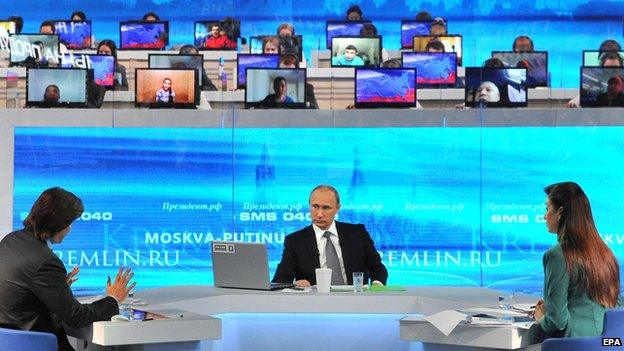
Russian journalists also explored some key issues with Mr Putin
Tough economic times
Mr Putin said he had told business leaders that he did not expect EU-US sanctions - imposed over Russia's actions in Ukraine - to be lifted soon.
"We need to use the situation to reach a new level of development," he said.
The BBC's Sarah Rainsford in Moscow says such phone-ins are highly choreographed but do reveal Russians' concerns. Russians' real incomes have fallen this year for the first time since Mr Putin came to power.
Mr Putin said the Russian economy would take about two years to bounce back from recession, or less as the rouble's value was rising again.
He said there were encouraging signs that Russian agriculture was growing and replacing imports of Western food.
Russian man: "I would like to invite Putin here to come and look for himself"
However, a dairy farmer introduced as "John - a Russian citizen" grilled Mr Putin over the hardship faced by farmers.
"You say everything is going well - sorry, that's not true," the farmer said. "I have five children... I need some assurance about their future in Russia. Do you believe the statistics or are they lying?" he asked in English-accented Russian.
The farmer is reportedly John Kopiski, external, originally from the UK, who has lived in Vladimir region for about 15 years.
Mr Putin admitted that farmers faced difficulties over low dairy retail prices and that cheap imports of powdered milk from Belarus were part of the problem.
"I don't have reason to disbelieve the statistics," he said, adding that the government would have to increase subsidies for farmers.
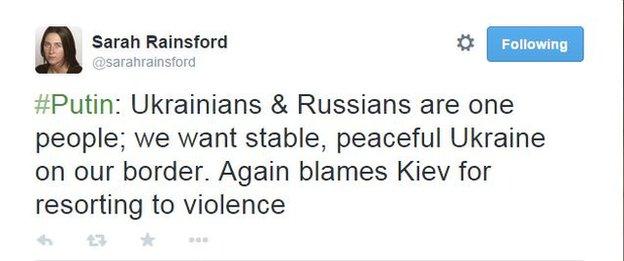

Missiles for Iran
Later in the phone-in Mr Putin was asked about Russia's controversial plan to export S-300 air defence missiles to Iran.
He insisted that the missiles were not on the UN list of banned exports under the UN sanctions linked to Iran's nuclear programme.
He said he made the move because Iran had shown "a desire to reach compromise". The S-300 "doesn't threaten Israel at all, it's exclusively a defensive weapon", he added.
Our correspondent says the questions for Mr Putin were clearly vetted, with nothing too critical or too personal. About two million questions came in before the broadcast.
Kremlin spokesman Dmitry Peskov said about 23% of the questions submitted concerned social welfare issues, and the second biggest area of concern was housing and local services.
- Published16 April 2015
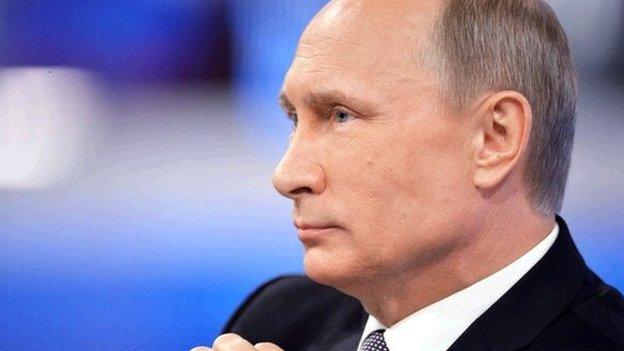
- Published27 March 2015
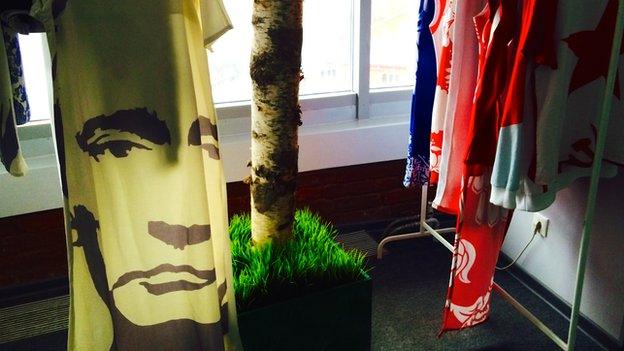
- Published25 March 2024

- Published14 April 2015
